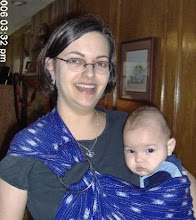In the wake of Hurricane Katrina, the lack of emergency preparedness guidelines for pregnant women, infants and new mothers in the United States became apparent.
"Pregnant women face greater risks -- like premature births, low-birth-weight babies and infant deaths -- during the stressful conditions of a disaster. This can make delivering a child difficult and potentially life-threatening," said Theresa Shaver, executive director of the District-based White Ribbon Alliance for Safe Motherhood.
The alliance believes that disaster situations call for a shift in the thinking of American women, who generally expect to give birth in a hospital or clinical setting. In the early phase of a disaster, officials said, births will often take place outside a health facility and without the assistance of trained health personnel.
"We will be in situations where there are no health-care facilities. In fact, if there is a pandemic flu, a hospital is not where you take a pregnant woman or an infant to," said Robbie Prepas, a certified midwife who heads disaster preparedness at the American College of Nurse-Midwives. During Katrina, Prepas helped many pregnant women with deliveries in airports and ambulances.
"We will have to retrain care providers to be comfortable with assisting deliveries outside hospitals," she said.




No comments:
Post a Comment